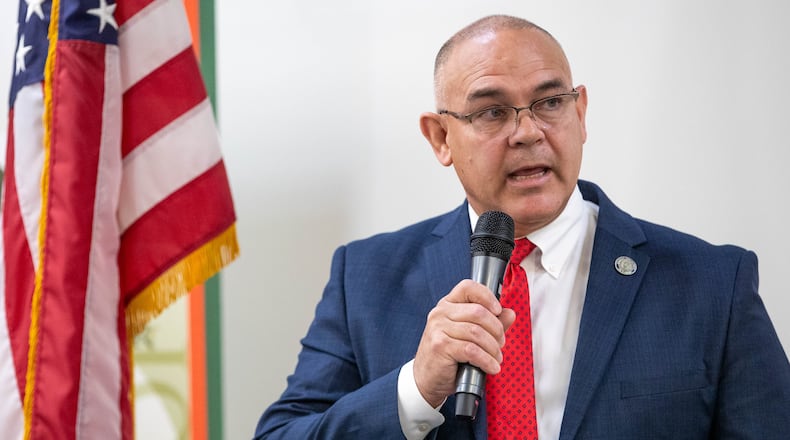After nine months on the job heading the Georgia Department of Labor, Bruce Thompson has overseen a reshaping of the organization, changes that have meant a streamlining of middle-level staff and departures of some top managers.
Many of those leaving were holdovers from the previous administration while a few were hired by Thompson after he became commissioner.
In an interview, Thompson emphasized that much of his top personnel has not changed since he took office, including the directors of unemployment insurance, human resources, marketing, development and his chief of staff.
“I am extremely blessed to have a senior executive team that I trust and is aligned with our mission to become the most transparent, efficient, and technologically advanced state agency,” he said.
Thompson, a long-time legislator, ran for the job last year after Mark Butler announced he would not run for a fourth term. He beat a large field of Republicans to win his party’s primary, then bested Rep. William Boddie, the Democratic nominee, in the general election.
His path to victory was not without controversy, even within the bounds of party.
Mike Coan, who left a high post at the department to run in the Republican primary, later sued Thompson for defamation. That case is still pending.
Thompson was also very critical of Butler, likewise a Republican who had served previously in the state Legislature. Thompson had argued that Butler’s handling of jobless claims during the pandemic had badly tarnished the department’s reputation and he said dramatic changes were needed.
Butler is now executive director of the Three Rivers Regional Commission, based in Griffin. He declined to comment for this article.
But during the pandemic, Butler vigorously defended the agency, arguing that the tsunami of jobless claims was not only sudden and unpredicted, but was far beyond the challenge posed by even the worst previous recessions. Moreover, new federal programs forced the department to adapt old technology on the fly.
In August, Thompson held a press conference in which he said an audit had discovered more than $105 million that was collected since 2014 as part of the employers’ tax that funds unemployment insurance. He said the money should have been had been disclosed.
At the time, Butler denied wrongdoing and called the announcement “political theater.”
Thompson said this week that most of the high-level departures were people who had those jobs under Butler and who he had asked to stay on for a limited time to help with the transition to his administration.
Among the higher-level management exits were the chief financial officer, chief operating officer, chief technology officer, chief information officer and the director of administration and facilities.
The department’s deputy counsel is currently on leave, Thompson said.
Some of the changes were driven by a large shortfall in the agency’s budget, he said.
Among the positions eliminated were a number which Thompson described as middle-management: three assistant director positions, two training and technology support positions, a project coordinator and the department’s legislative liaison. Some of those roles have been combined with other positions.
“Ensuring we have the right people in place moves us one step closer to our goal of fiscal responsibility and more effective governance,” he said.
About the Author
The Latest
Featured



